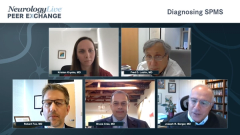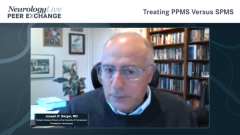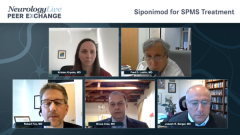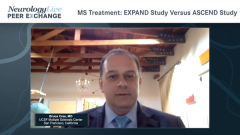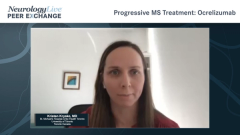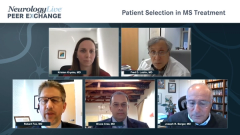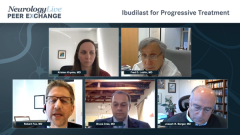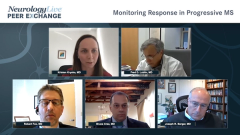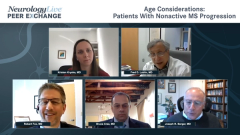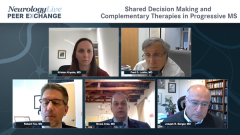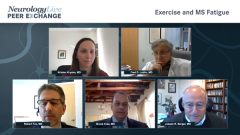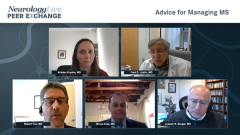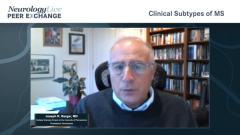
Advice for Managing MS
Joseph R. Berger, MD, and Fred D. Lublin, MD, offer advice to community physicians and neurologists in managing patients with multiple sclerosis.
Episodes in this series

Bruce Cree, MD: My last question is going to be to Joe and Fred, again in the context of looking ahead. What advice would you give to community-based neurologists who are treating patients with progressive MS [multiple sclerosis] and may not have access to the multidisciplinary teams that specialist centers have at their disposal? A lot of people live in rural areas and have a harder time accessing the MS centers that are typically in major metropolises. How do you advise the community-based practitioner?
Joseph R. Berger, MD: Managing MS is complex. It’s multifaceted and time-consuming. One of the things that I always recommend is: Don’t be afraid to reach out. I practiced in a state that was predominantly rural. There were fewer neurologists for the entire state than we have in the city of Philadelphia. It was very often that I’d see patients who had MS maybe once or twice a year and then co-managed these cases with their community physicians. There was no way that they were able to get into Lexington, Kentucky, with the frequency that they would have had I been practicing closer.
The most important bit of advice is: Don’t be afraid to reach out to people who have skills in managing MS, because it’s become much more difficult these days. There was a time when we really didn’t have any therapies for multiple sclerosis. It wasn’t all that long ago. It was certainly while Fred and I were practicing. With the new drugs as they’ve come onto the market and the new ways of monitoring patients and their symptoms, it’s sometimes best to have an individual who has experience with doing so weigh in periodically. Don’t be afraid to co-treat patients. Even if it’s a phone call, it’s often worthwhile.
Bruce Cree, MD: Fred?
Fred D. Lublin, MD: I agree with what Joe just said. It requires comprehensive care. We had that conversation already. It’s obviously not available in the community. But what we do is we partner with the guys out in the community. I have great respect for the guys doing general neurology because they have to know a lot about what I know and a lot about epilepsy, migraines, and Parkinson disease. All these areas have become more complicated as well.
We’ll partner. We’ll see their patients about once a year, and they’ll work with them in the interim. That way they have the advantage of our comprehensive care staff, but they still could be far away, not have to travel as far, and have a local neurologist as well. Now with telehealth, we’ve expanded the range of people we can see comfortably, where they don’t have to travel into the city as often.
Bruce Cree, MD: That’s great. One of the teachings from the pandemic is that we are able to help patients remotely. All of us have developed a set of telehealth skills that we never had before as a consequence of not seeing patients in person and asking people not to travel. This has added to our skill set.
This has been a fantastic discussion. I want to thank Dr Krysko, Dr Lublin, Dr Fox, and Dr Berger for their participation in today’s program. Thank you for watching this NeurologyLive® Peer Exchange. If you enjoyed the content, please subscribe to our e-newsletters to receive upcoming Peer Exchanges and other great content right in your inbox.
Transcript Edited for Clarity
Newsletter
Keep your finger on the pulse of neurology—subscribe to NeurologyLive for expert interviews, new data, and breakthrough treatment updates.

